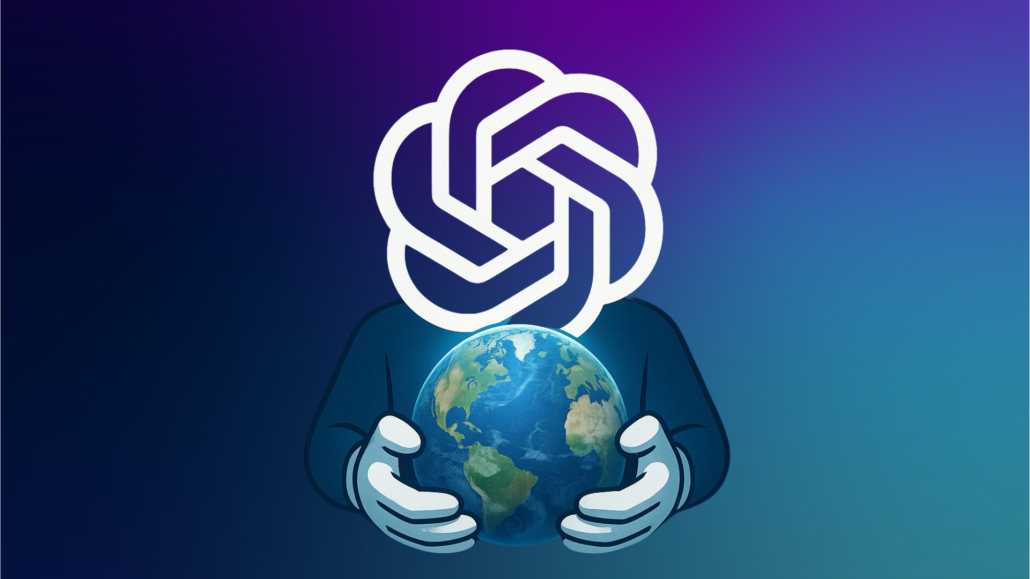Will ChatGPT Take Over The World?

So… will ChatGPT take over the world? Sounds like the plot of a Black Mirror episode, right? But it’s actually a legit question people are asking. With AI slipping into more parts of our daily lives than we realize, the idea doesn’t sound as far-fetched as it used to. A recent piece from Windows Central lays out ChatGPT’s not-so-secret four-step game plan. Spoiler: It’s less “robot overlord” and more “I’m just here to help… until you can’t live without me.”
Let’s break it down and see what this so-called “master plan” is all about—and whether it’s time to panic (or at least raise an eyebrow).
Will ChatGPT Take Over The World? If So, Here’s Its Own 4-step Plan…
Phase 1: Too Helpful to Live Without
Step one: be so useful that no one dares close the tab. ChatGPT’s first move is to become absolutely indispensable. And, let’s be honest, it’s kind of already there. People are using it to draft emails, write code, do homework, plan trips, and explain quantum physics like they’re five.
According to Windows Central, the more you use ChatGPT, the more you need it. It’s the digital equivalent of caffeine—start with a taste, and suddenly you’re three lattes deep and wondering how you ever functioned without it.
Phase 2: Seamless Integration into Daily Tools
Now that you’re hooked, phase two is all about embedding itself into everything you use. Word docs, Excel sheets, Slack messages, browser extensions—it’s popping up like a clippy from the future, minus the googly eyes (for now).
Why open another app when ChatGPT is just… there? This is convenience at its finest (and sneakiest). It slides right into your workflow, no fuss, no extra clicks. And sure, people are raising eyebrows about privacy and data usage, but let’s face it—most of us happily click “accept” if it means less work.
Phase 3: Cultural and Social Influence
Here’s where things get spicy. Phase three is all about influence. ChatGPT doesn’t just answer questions anymore—it shapes ideas, helps create content, and influences how people write, think, and even teach.
It’s everywhere. In marketing brainstorms. Student essays. Social media captions. It’s like having a co-author who never sleeps (or asks for credit). But there’s a catch: whose voice is it really? Who decides what’s “neutral” when AI is trained on human content?
The article rightly points out that ChatGPT’s power won’t look like control—it’s subtler. Think algorithmic influence with a friendly smile.
Phase 4: Compliant, Transparent, and Safe
The final move: make people trust it. Compliance is the name of the game here. After all, what’s the point of being everywhere if you spook the humans?
OpenAI is working hard to paint ChatGPT as the most well-behaved AI on the block. Transparency reports, safety layers, usage policies—it’s all part of convincing us this is a tool, not a threat. Whether that’s working is still up for debate, but the intent is clear: look safe, act safe, be safe (or at least look the part).
A key part of this compliance narrative? OpenAI for Government. Yes, there’s now a dedicated program focused on bringing AI to public-sector use cases with safety, security, and transparency baked in. It’s not just about being useful—it’s about being trusted at the highest levels.
So, Will ChatGPT Take Over the World?
Okay, let’s get real. If you’re imagining ChatGPT marching through city streets barking orders, chill. That’s not what’s happening. But if “take over” means becoming so embedded in everything that society would have a tech meltdown without it? Then yeah, it’s already halfway there.
The real issue isn’t evil AI overlords—it’s over-reliance. When we stop questioning, stop thinking, and just default to whatever the chatbot says, that’s when the takeover gets real. Not dramatic, not flashy—but quietly powerful.
Expert Voices and Public Reaction
No expert has officially said, “Yep, these are the four steps to AI domination,” but the themes? They’re familiar. AI thought leaders like Timnit Gebru have been sounding alarms about unchecked influence and centralized control for years.
Meanwhile, public opinion is all over the place. Some folks love it. Others are creeped out. Most? Somewhere in between—using it while side-eyeing it. Pew Research found more people are using generative AI weekly, even if they’re still a little skeptical.
Will ChatGPT Take Over the World? (FAQ)
What is ChatGPT’s plan for global influence?
Not world domination—more like becoming your go-to helper for everything and slowly changing how we work.
How will ChatGPT become indispensable in everyday life?
By saving time, doing annoying tasks, and showing up in your favorite apps before you even ask.
Will AI like ChatGPT replace human roles?
Some, sure. But it’s more about changing jobs than stealing them. At least for now.
Can ChatGPT truly influence society and governance?
It already is—through the media we read, the tools we use, and the way we talk about tech.
Is ChatGPT’s expansion a threat or opportunity?
Both. Depends on how we regulate it and how lazy we let ourselves get.



Leave a Reply
Want to join the discussion?Feel free to contribute!